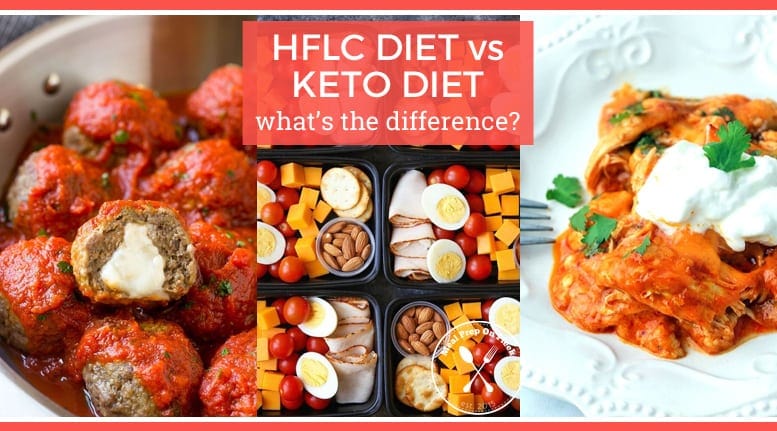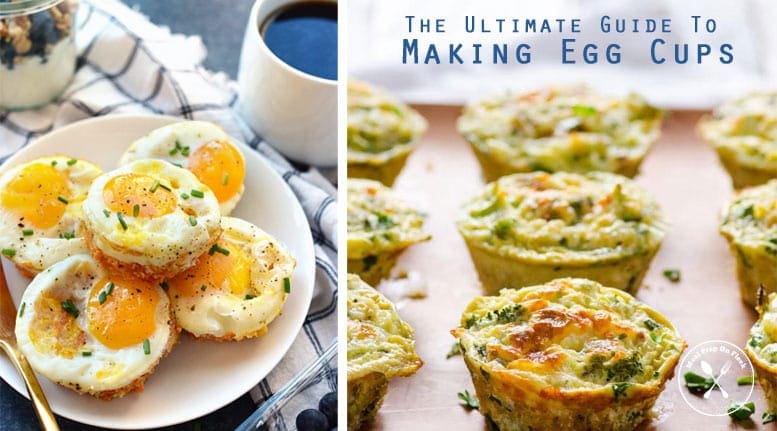7 Diet Myths Busted
Diet myths easily thrive in the health and fitness world. Some of them are encouraged by the agendas and surpluses of the food industry. Some we have heard for decades and now are just accepted as fact. Some of them actually sound logical (ie. “Fat makes you fat.”) so we believe them because they just sound right. But with the increasing commonality of obesity and Type 2 Diabetes, we have realized that what we have been doing for decades cannot be right.
The following are Meal Prep On Fleek’s top 7 diet myths busted
1. Whole Wheat and Grains are Your Friends
There is a whole history to wheat that we will only touch on here, but suffice it to say, that the wheat and grain that we ingest today is no longer the wheat that we consumed 100 years ago; its no longer your Grandmother’s grains. The sad fact is, that wheat is a commodity that can be used to feed a hungry world very cheaply, but it has gone through so many modifications of how it is grown, harvested, and processed, that it has been greatly reduced in its nutritional value and can actually be linked to digestive problems and the soaring increase of diabetes and obesity epidemic..
Modern milling of grain for flour (as opposed to vegetable flours) can be done quickly, conveniently, and economically, but leaving it without any nutritional value to speak of. Additionally, our modern wheat crop is soaked in pesticides (since the 1960’s) to make it resistant to pests and to allow for a bigger harvest per acre. I don’t need to tell you that this is not a healthy development! Unfortunately, the more we avail ourselves to this high carb, inflammatory food, the less we consume vegetables and healthy fats and proteins.
2. Low-Carb Diets are Dangerous
Being taken in by this myth would require you to believe that reducing blood pressure, insulin levels, and body fat is dangerous to your health. When we consume carbohydrates, our body immediately turns those carbs into glucose. Glucose is important to provide fuel for our cells however, our cells have only a certain capacity that it can hold. When that capacity is exceeded, the rest is stored as glycogen in the muscles and liver. If there is excess beyond the capacity of muscles and liver, it is then stored as fat in the body. Excess fat can then lead to higher amounts of insulin resistance (elevated insulin levels) which is known to make us store fat. The less insulin resistance, the more fat can be released to be burned for energy resulting in weight loss. Cutting carbs is the best way to deplete glycogen so that it is not as available and your body will then turn to your fat stores for its energy first.
3. It is Best to Eat Many Small Meals Throughout the Day
This is one of the most logical sounding myths about dieting out there. The logic goes that it is easier to keep our metabolic furnaces fired up and burning calories if we provide little bits fuel for it to burn throughout the day. It sounds good, except that it may not work that way at all. Recent studies into the idea have found that it is less important how often you eat than what you eat. It may actually be true that by grazing throughout the day, never allowing yourself to feel a hunger pang, can actually not give your body opportunity to burn residual fat because you are constantly providing fuel for your metabolism. There is a certain amount of energy expended when you are digesting food and the number of calories you eat will determine how much. This burning of calories is called the Thermic Effect of Food (TEF). Two or three normal meals a day will keep your metabolism going just as strongly as six small ones.
4. Egg are High in Cholesterol and Should be Avoided
According to the Harvard Health Letter dated January 2017, this is a myth. It matters more what you pair with your egg rather than whether you have one. Those that are at high risk for heart attack or diabetic (type 2) are recommended to limit eggs to no more than 3 per week, but for the general public, eggs are a wonderful whole food protein. Eggs have come under scrutiny because of the amount of cholesterol in the yolk. Recently, however, studies have shown that cholesterol is made by the liver and our LDL (bad cholesterol) levels does not come primarily from dietary cholesterol. Go eat those eggs fam!
5. Stay Away from Saturated Fat
“Fat makes you fat!” Isn’t that the dieting mantra that you heard over and over until recently? I sure did and I am so pleased to learn that this is not true at all. Trans fat can cause inflammation and is very unhealthy (see below about oils), but that should not be confused with saturated healthy fat.
I always struggled with enjoying low-fat anything (even though low-fat items are loaded with extra sugar) and now, I find out that I don’t need to cut out all those wonderfully great tasting healthy fats. Come to find out, we NEED fats in our diets not only for the taste and nutrition they provide but also to keep us healthy and satisfied so we don’t crave extra calories in between meals. Look to add some of these fats to your favorite recipes and watch your LDL(good cholesterol) level rise: Butter, Avocado, Olive oil, and Coconut oil.
6. A High-Protein Diet is Unrealistic and Unhealthy
Actually, recent studies have shown that if you stay within 35% of your overall calories being protein, you are on the best track of keeping your blood sugar stabilized throughout the day so that you don’t have the typical sugar highs and lows, moodiness, and cravings that tend to accompany other food plans. Protein is important for strong bones and healthy organs. Enjoy your proteins that come in the form of certain organic meats, salmon, bone broth, kefir, nuts, and beans. Lentils also are a great source of protein!
7. Refined Seed and Vegetable Oils are Super Healthy and Lower Cholesterol - NOT!
Nothing could be farther from the truth when it comes to healthy oils. Vegetable oils, which do not actually come from vegetables, but processed seeds, contain trans fats which are known to be highly inflammatory and unhealthy for us. This is because refined seed oils are rich in Omega 6 fatty acids which are pro-inflammatory. What we want is foods rich in Omega 3 fatty acids which help to reduce inflammation. Not to mention that the processing methods which involve “washing” the oil in chemical solvents. Eww. That can not be good for us. The oils that you want to consume and cook with are plant oils like olive oil, coconut oil, and the newest best oil on the block, avocado oil.
Have you ever fallen into the trap of any of these diet myths? What about something else?



Leave a Reply